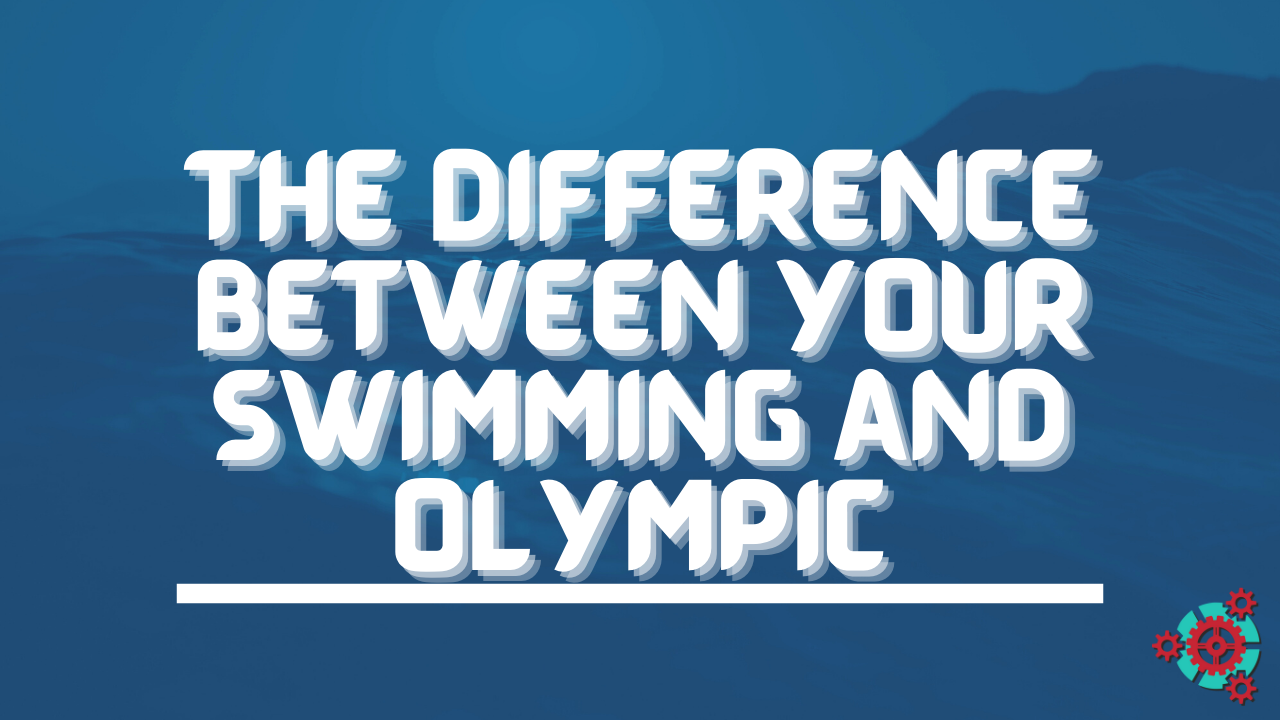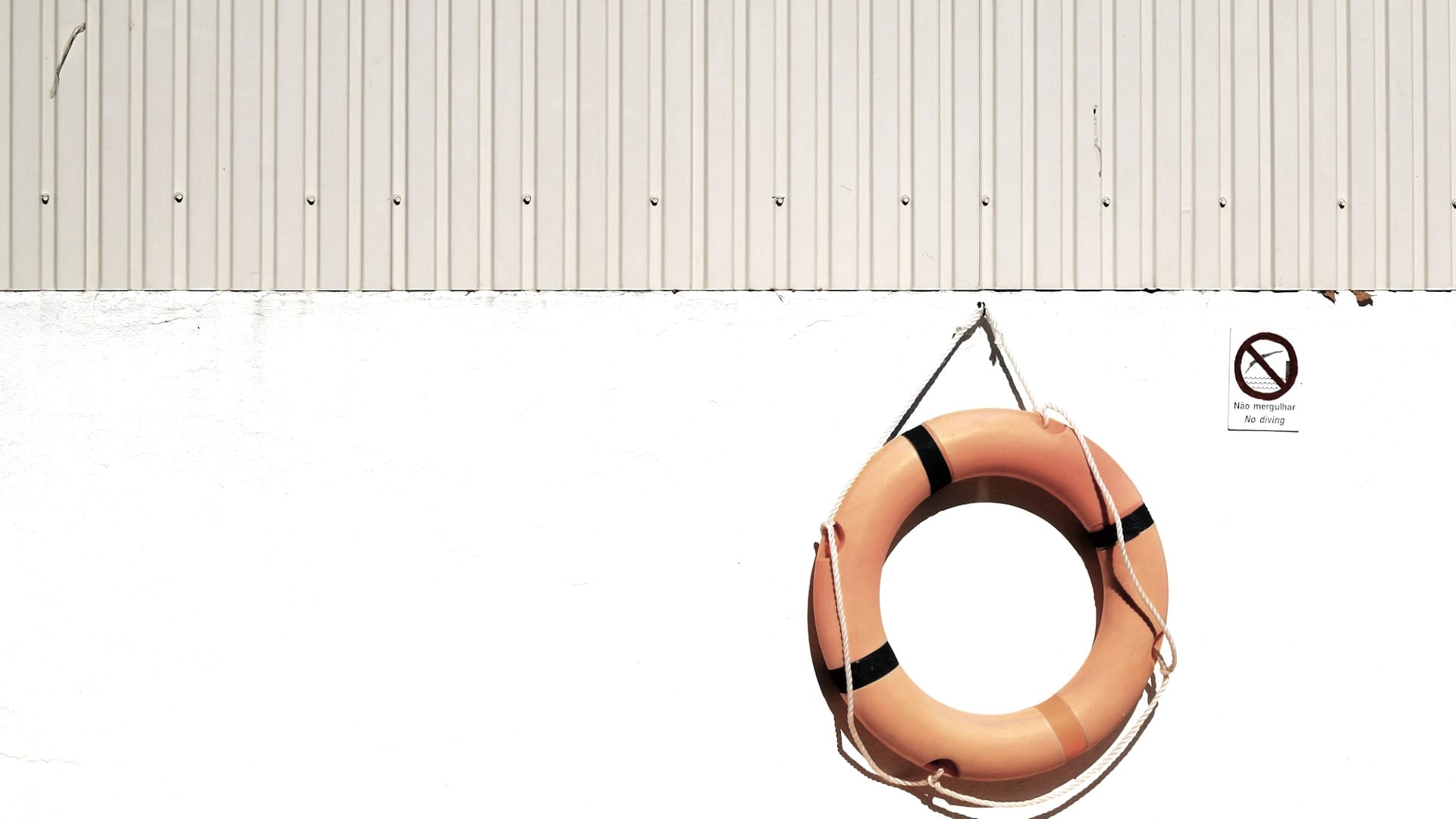Most videos you’ve probably seen of swimming are done with the most advanced swimmers out there. You don’t need to compare yourself to those individuals, or try to achieve their level of skill. Most of the time with any skill it takes a sheer amount of time just to get the top 30-40%.
If you get even just halfway there, middle of the skill range, then you’ll be better than MOST people at that skill. Especially something physical like swimming.
Why + Philosophy:
You just need progression, to keep pushing forward, and to keep making your body just a little bit better. I’ll also include your mind, as there is a lot mental prowess you need in swimming too.
If you think of it as this: I need to just get a little bit better each time I try. Rather than this: I need to get to that person’s level. Then you’ll be in a far better place, and in a much quicker timespan.
There is an image out there, for the life of me I couldn’t find it, but it is of a swimmer looking over at the person in the lane next to him. It might’ve been a guy looking at Michael Phelps now that I think about it, but the point is that movement of turning to look. Then staying to watch the other person.
That action is causing you to increase your surface area fighting the water, and causing you to slow down. If you spend the time to compare yourself to the person next to you, then you waste what could have been spent on getting you farther.
How + Physics:
Now I think a great way to explain this is with my Three Simple Steps of Swimming. Yes it is three, but it is not.
I went into detail of the “B-Side” of the 3 Steps in the past on this newsletter. I’ll list them out here for reference:
A: Kicking Legs Straight
B: Consistently
A: Face Down
B: Chin Down
A: Arms out of the Water, Diving Back In
B: Reach Out, Pull hard
Now for beginners I just focus on the legs, maybe face, then we can add the arms into the mental juggling. That alone gives a lot of people a hard time, as you are trying to focus on many things at once. The three steps make it to where you no longer multitask, but rather 1-2-3 in your mind.
I added the B-Side to simplify the teaching of the more advanced things. Keeping your chin down isn’t fully necessary to swim well, but it does make your speed change quite a bit if done right… or wrong.
They all stack onto each other.
What + Psychology:
The reason why I made the last section so detailed, was because I wanted to put into perspective where you should be thinking. The A-Side is for Beginners, the B-Side on top of that for intermediate, and then we have the advanced. Which I’ll group competitive swimming with Olympic, although the latter is like top ten percent.
Those people who are trying to shave MILLISECONDS off of their total time on a swim lap. They need to think about all of those steps in detail. While also considering what you can just think of as their own “C-Side” to the Three Steps. I haven’t given it much thought as to what those steps could be for those needing them, but for this exercise let’s think of it as this:
Mental calmness, breathing rythym, and muscle energy expenditure/fatigue.
Instead of 3, or even 6 things to remember, they have about 9. Calculating the energy needed in a given moment to execute the movement they need at that time.
Conclusion
My point is that the most advanced swimmers have a much higher threshold to uphold, and they have a need that is DIFFERENT than YOURS.
I make this newsletter for all levels, and some people might say to niche down. However I think the lessons can apply to most people.
However, a lot of what I talk about IS catered to the people starting out. You have the needs of gaining new muscles when doing a new stroke. The needs of staying calm when you run out of breath underwater for the first time. The needs of literally learning the basics so you can start to train the brain-muscle connection.
You shouldn’t compare yourself to the advanced swimmers because you are not there…yet.
Disclaimer:
This is advice for people to level up their swimming, or perhaps get started in the first place. While you swim you should make sure you are doing so in a public facility with a lifeguard on duty for safety.
![Official Website for Dustin Miller PolyInnovator [LLC]](https://polyinnovator.space/content/images/2025/03/polyinnovator-logo-2024.png)











